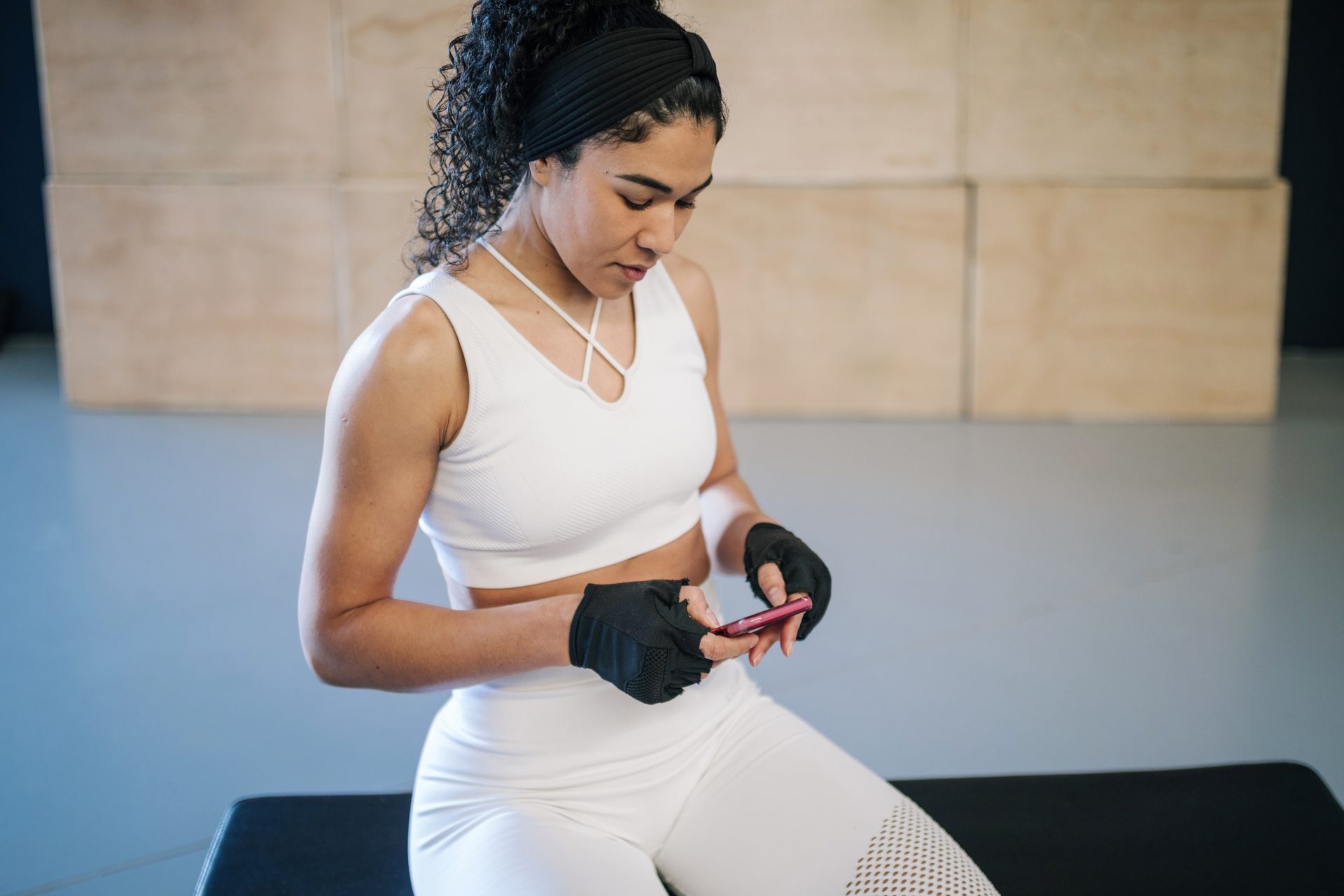’Negative motivation’ on social media explains why we end up exercising from a place of comparison.
People love to talk about motivation on social media. Whether it’s videos simply showcasing ways to feel more motivated or long captions explaining why motivation is a myth, anyway, you’re never more likely to come across the word than you are when scrolling Instagram or TikTok. And no industry loves motivation like the fitness industry.
#WorkoutMotivation has 20 million posts on Instagram. Nearly 2 billion people have watched videos using the same hashtag on TikTok. But while clearly creators and influencers are clearly enjoying sharing their nuggets of workout wisdom, do the rest of us really like seeing it?
You may also like
Self-discipline and exercise: “Why I don’t rely on motivation to workout”
Well, the research would suggest that scrolling through social media does motivate us to work out. A 2019 study by the Journal of Psychology found that the more time women spent on social media was associated with greater motivation to exercise. But there’s a catch. That motivation came from an increase in thin-idealisation – the belief that a smaller body is a better body – and objectified body consciousness (a preoccupation with how one’s body compares to another’s). Speaking about the findings in Psychology Today, researchers wrote: “One reason is that social media is used for comparison and self-evaluation. Initially, comparisons may be inspirational, although as time passes, women may become frustrated, which results in body dissatisfaction.”
Why does social media fuel negative motivation?
Given all the reasons in the world to exercise, doing it out of dissatisfaction or, in extreme cases, hatred for your body kind of misses the point. But negative motivations are common, says psychologist and eating disorder specialist Dr Rachel Evans. “Someone who is negatively motivated will seek to avoid an unwanted outcome and is motivated to act by a fear of failure,” she explains. “That could be a tennis player extending training sessions because they’re worried about losing their rank within the club or someone who exercises hard to try to avoid weight gain. Those who are negatively motivated can experience a greater pressure to perform or achieve.”

Alternatively, those who are positively motivated will be working towards the desired outcome. For example, a sense of accomplishment after running a personal best or the feel-good endorphins they get after a gym session.
Does exercise motivation matter?
So what if you’ve been motivated after comparing your body or your ability to that of another person? Surely the point is that you’re doing the exercise, right? Not quite.
“Self-determination theory suggests that when motivation comes from within the individual (like a desire to gain new skills, a wish to feel healthier or improve fitness) they feel more in control of their behaviour and are more likely to sustain changes long-term than those who are motivated by external rewards (such as prizes, praise or approval from others),” says Dr Evans.
“Plus, posts about exercise can be shared by anyone on social media and there are people giving out advice without the appropriate qualifications, which could be dangerous.”
You may also like
Fitness motivation: “Instagram damaged my relationship with fitness – here’s how I got it back”
As well as your workout routine, your long-term mental health is at risk too. The body dissatisfaction triggered by social media can result in higher levels of compulsive exercise and disordered eating, says Dr Evans who references a 2016 study published in the International Journal of Eating Disorders.
That is, of course, not the case for every post on social media or every individual user. Many people don’t internalise what they see online, and plenty of others find it positively motivational.
“I don’t compare myself to people online because fitness is their whole life and their whole job – it’s not mine,” says my friend Leonie. “I just like scrolling through their pages to find the exercises that I want to do in the gym, and get motivated when I land on a combination that feels exciting or challenging.”
For Stylist’s beauty writer Morgan Fargo, the platform matters. “Instagram now feels completely non-obtainable and always focused on aesthetics – it’s people with traditional desirable aesthetics. But TikTok seems to be people in the process of trying to be fitter/happier/healthier. Like, not ‘perfect’ but trying their best each day, which is what resonates with me. I would say IG feels like fake performativity and TikTok feels more authentic.”
She also notes that she’s “painfully aware how many of these ‘perfect’ people are struggling or not what they seem online. The gym and fitness influencer lifecycle feels more transparent to me than ever. On TikTok it’s mostly regular people doing regular things in regular ways. I find that far more motivating.”
How to create positive motivation from social media
If you’re worried you’re falling into a negative trap of only moving from a place of dissatisfaction, Dr Evans suggests starting with a sweep of your social media. “Red flags would be if you notice yourself comparing your body weight or shape to others and feel upset or inadequate and if fitness accounts are making you feel guilty for taking a rest day,” she says.
You may also like
Nutrition myths: 3 red flags to watch out for in your relationship with food
“Then diversify your social media and follow fitness accounts from creators with different body shapes and sizes, especially those who focus on joyful movement and the health benefits of exercising can help to reduce negative comparisons.”
What everyone wants from their influencers is different depending on their goals and what sparks that positive motivation. If you are inspired by strong women doing incredible things, Laura Hoggins (@laurabiceps) and Chloe Whylie (@whyliecanlift) are great people to see moving across your home page. If you’re in need of some attainable fitness content, @courtnayfitlondon shares great gym tips on her Instagram page.
Importantly, relying on one source of motivation or inspiration for anything isn’t advised; what if you can no longer access that spark? “Instead, focus on how exercise will benefit you. That boost of endorphins that raises your mood after a long day at work or feeling fitter and better able to run around after your kids,” says Dr Evans.
“Exercising with a friend can motivate you to work out when you might not have felt like it, and finding activities that you enjoy usually means that you’re more likely to stick to exercise in the long run.”
But remember that ‘motivation’ is a concept to be wary of – you likely won’t feel motivated to do things all the time. And motivation definitely doesn’t mean giving 100% of yourself to all of your workouts – it’s possible to take rest days, listen to your body and train from a place of positivity while still being ‘motivated’.
Images: Getty/Pexels
Source: Read Full Article
